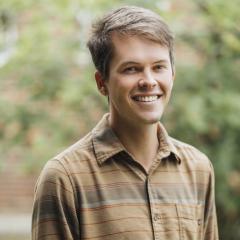Clark argues in legal victory against Bay Area biofuel refinery
Editor's note: Based on an original press release by the Center for Biological Diversity.
Communities for a Better Environment and the Center for Biological Diversity won legal victories in July over Contra Costa County’s approval of two proposed biofuel refinery conversions in the Bay Area. The Superior Court of Contra Costa County found the county relied on incomplete and misleading environmental reviews in violation of the California Environmental Quality Act, or CEQA.
The court found that the county’s environmental review for one project, the Marathon-Tesoro refinery in Martinez, failed to properly evaluate ways to reduce odors from the refinery. For another project, the Phillips 66 refinery in Rodeo, the court found the county’s review failed to properly assess major project components as well as odor mitigation.
Switzer Fellow Ben Clark argued the case against Marathon as a certified student attorney with the Stanford Environmental Law Clinic. The Environmental Law Clinic at Stanford enables students to provide legal assistance to nonprofit organizations on a variety of environmental issues, focusing primarily on natural resource conservation.
The Phillips 66 refinery in Rodeo would produce more than a billion gallons per year of biofuel products, making it one of the largest biofuel refineries in the world. The Marathon-Tesoro project would produce more than 700,000 gallons per year of biofuel products, making it one of the largest biofuel refineries in California.
Combined, the two projects would require at least 82,000 truck trips, nearly 29,000 railcars, and more than 760 ship and barge visits annually, adding to pollution, traffic and the risk of spills and accidents. In addition, generating and processing biofuels generates offensive odors to nearby communities, worsens the climate crisis, and can drive up food prices.
Communities near the refineries are categorized by the state as “disadvantaged” due to their high exposure to pollution from existing industries. The proposed refinery projects would lock in continued air and odor pollution for these residents for decades to come.
Workers and local residents deserve to lead in shaping the future of the communities they call home. We hope that today’s decisions mark a turning point, one that begins to reverse a legacy of fossil fuel harm and advance a just transition to the equitable future that Martinez and Rodeo residents have fought so long and so hard for.
Ben Clark, Student attorney and 2023 switzer fellow
